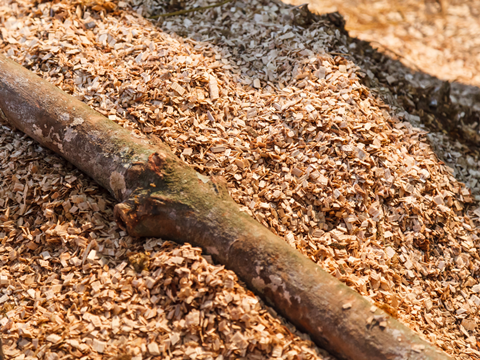
In a bid to fully utilize the wood used in pulp production and prioritize renewable resources over fossil-based materials, Andritz is introducing a complete solution for producing kraft lignin into Södra’s pulp mill – the first of its kind in Sweden and the largest in the world, the companies claim.
Kraft lignin is a byproduct of pulp production for paper and is currently utilized to generate energy at pulp mills. Yet it also has the potential to form the basis for new biofuels or replace fossil-based materials as a renewable resource for the chemical industry, Andritz explains.
Therefore, Södra is adopting Andritz’s system for recovering lignin from the black liquor generated in the pulping process. Based on Andritz’s LignaRec lignin recovery process, it involves a drying section equipped with flash dryer technology; here the kraft lignin will be processed further in an effort to optimize product quality.
Södra will then be able to sell the lignin as a product, with the scope of supply expected to support systems that will benefit the mill’s environmental performance and fully integrate lignin recovery into existing operations.
Introducing the process to the Mönsterås mill will also involve the installation of an Andritz SulfoLoop sulphuric acid plant, which is expected to close the loop on sulphur and avoid sulphate streams even when lignin recovery is fully operational.
Both lignin and sulphur recovery solutions fall under Andritz’s CircleToZero initiative, the goal of which is to maximize the use of side streams in pulp mills and lay the groundwork for zero-emissions, zero-waste production.
Södra also seeks to make its debut on the lignin market with this new investment, contributing to its strategy to make the most of the wood used in pulp production.
The lignin production plant is enabled through the Swedish Energy Agency and The Industrial Leap via NextGenerationEU, and is expected to begin its operations in 2027.
“This investment means a lot for Södra and for our kraft pulp mill in Mönsterås,” says Karin Dernegård, mill manager at Södra Cell Mönsterås. “We will make more out of every tree and strengthen our profitability. This is a big investment for Södra and the green transition.”
Södra’s Mönsterås mill already features an Andritz Kraftanol biomethanol plant, the ‘first of its kind in the world’ to convert byproducts of pulp production into purified biomethanol.
“We are very pleased that Södra has once again placed its trust in us to implement a first-of-its-kind solution that supports the green transition and at the same time opens up new business opportunities,” adds Joachim Schönbeck, president and CEO of ANDRITZ.
A similar development arose earlier this year, when AIMPLAS announced its plans to convert lignocellulosic waste, or plant waste from agriculture and forestry, into packaging and adhesives using solvent-free mechanochemical techniques. The move is expected to keep harmful substances out of landfill and the natural environment.
Also, Metsä Spring led a €2 million pre-A funding round late last year to help Montinutra upscale its chemical-free, pressurized hot water extraction technology. This is said to result in vegan, non-GMO, and biodegradable products that can be used in industrial binders, barrier coatings, dispersants, and personal care applications.
More recently, Lignin Industries AB has announced the mass commercialization of its biobased Renol material in Sweden. Utilizing lignin found in trees, the company plans to lower CO2 emissions and reduce reliance on fossil-based plastics.
If you liked this story, you might also enjoy:
How are the top brands progressing on packaging sustainability?
Sustainable Innovation Report 2024: Current trends and future priorities
Reuse vs. single use – which is better for the environment?
The ultimate guide to global plastic sustainability regulation














No comments yet